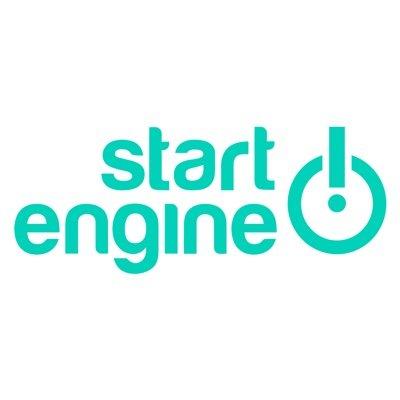Invest in fractionalized fine wine collections and rare spirits
Invest in startups in exchange for equity or debt
Investments
$250
The minimum investment on StartEngine typically starts from $250, with the average being around $500.
Moderate Risk
3/5
Investing with Vint carries inherent risks, including market volatility and economic fluctuations that can impact the value of wine and spirits collections. The lack of a secondary market further increases risk by limiting early exit opportunities for investors.
High Risk
4/5
Investing on StartEngine carries risks including market volatility, liquidity challenges, regulatory changes, the high likelihood of company failure, dilution of shares, limited company information, and the absence of guaranteed returns.
Minimum Liquidity
1/5
Vint currently does not offer a secondary market for the trading of interests in its wine and spirits collections, which means that investors generally lack immediate liquidity options.
Minimum Liquidity
1/5
Liquidity on StartEngine Secondary varies due to its nature as a peer-to-peer trading platform with specific eligibility criteria and trading hours. Initially limited to companies that have raised on StartEngine, the platform's liquidity is influenced by the availability of securities and the matching of buy and sell orders within designated market hours.
Receive new reviews from Fintorial
High Return
28.7 %
Vint has achieved a net annualized return of 28.7%, calculated from realized exits of its investment offerings, reflecting the aggregate average performance of the platform's assets under management.
Not Predictable Return
N/P
Potential returns on investments are uncertain and vary. StartEngine's role ends after a company's capital raising concludes, leaving it without control or insight into post-offering investment activities.
Long-term Investment
1-3 years
Vint's investment time horizon for its collections spans 1 to 3 years on average.
Long-term Investment
5+ years
Investments through StartEngine typically have a long-term horizon, often requiring several years to potentially yield returns due to the early-stage nature of the companies.
Who can invest
United States
Investment opportunities with Vint are open to accredited investors, who must satisfy certain SEC-mandated financial criteria.
Who can invest
International
StartEngine allows anyone over 18 to invest. However, due to regulatory concerns, StartEngine does not currently accept investments from residents of the UK or Canada.
Moderate Volatility
3/5
The wine and spirits market experiences volatility, which can lead to rapid changes in the value of Vint's collections.
Moderate Volatility
3/5
Assets on StartEngine, mainly shares in startups and early-stage companies, exhibit high volatility due to uncertain revenues, evolving business models, and market sensitivity.
Regulation and audits
SEC Regulated
Vint adheres to SEC regulations by providing offering circulars for public investment and undergoes regular audits to maintain financial transparency and regulatory compliance.
Regulation and audits
SEC Regulated
StartEngine operates under strict regulatory oversight by the SEC and FINRA, ensuring adherence to investor protection and market integrity rules.
Insurance
Yes
Vint's investment assets are professionally stored and fully insured, with a strategic focus on location, primarily in the UK and additional facilities in the US, to align with potential sale markets.
Insurance
Yes
StartEngine's memberships with FINRA and SIPC signify its commitment to investor protection, with SIPC offering insurance against the loss of cash and securities if a broker-dealer goes bankrupt. However, it doesn't cover market loss.
Payouts
No Recurring Payouts
Vint does not issue regular dividends; returns are generated from the sale of assets at a gain.
Payouts
No Recurring Payouts
Dividends on StartEngine depend on the individual company's policy and investment terms, with startups often reinvesting profits to fuel growth rather than distributing dividends.
Withdrawals
Investors receive funds from Vint after a collection is sold and proceeds are distributed, less any applicable fees.
Withdrawals
Investors can withdraw available funds from their StartEngine Investment Account after a 10-day waiting period from the initial transfer, subject to providing additional information for security if needed.
Extra Fees
Yes
Vint applies a transaction fee of 2.85% on both the purchase and sale of wine shares, encompassing costs for acquisition, storage, insurance, and selling. Additionally, there is a spread fee of 1.5% applied to the transactions of wine shares.
Extra Fees
Yes
Investors may encounter a 3.5% processing fee on investments, depending on the company's choice. Wire transfers could have additional bank fees, while ACH and credit card investments don't have extra fees beyond the 3.5% if applicable. Trading on StartEngine Secondary is free for buying, but selling shares includes a 5% transaction fee.
Taxes
Tax Form
After a collection sale, Vint issues pro-rata proceeds to shareholders and provides a 1099-DIV for tax reporting, prioritizing the settlement of any liabilities first.
Taxes
Annual Statement
Investors must procure the necessary tax documents directly from the entities in which they have invested, since StartEngine does not distribute tax forms.

